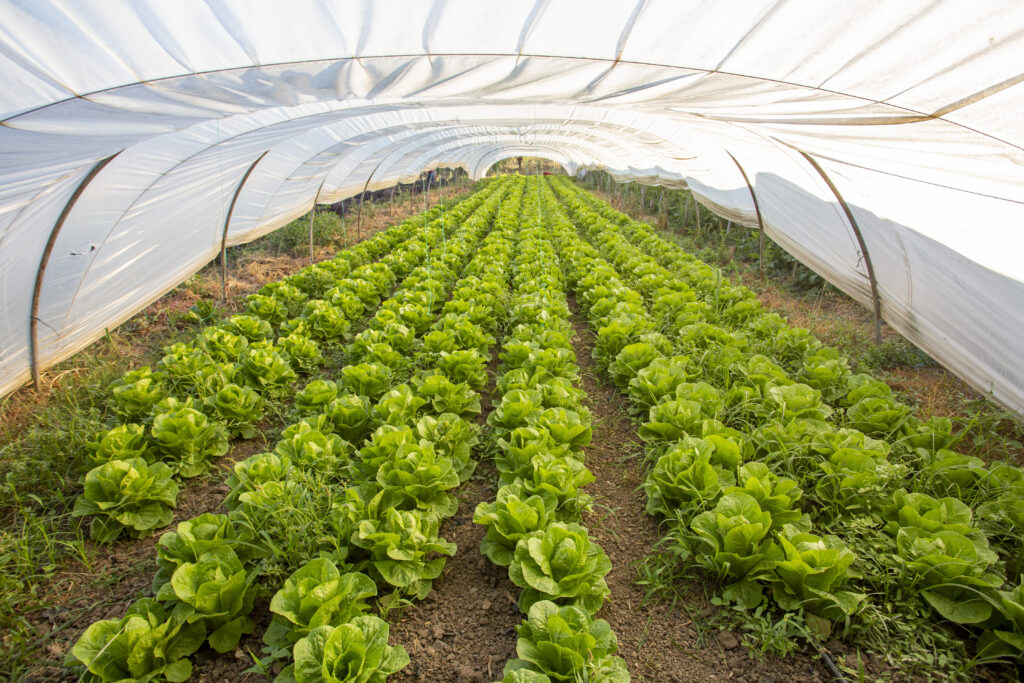Summary: This study explored the potential of using a microbial-based biostimulant to enhance the agronomical, physiological, and functional quality of greenhouse-grown lettuce (Lactuca sativa L.) under varying water availability regimes. The biostimulant contained two strains of arbuscular mycorrhizal fungi (AMF) and Trichoderma koningii, and its effects were studied under well-watered (WW), moderate deficit irrigation (MDI), and severe deficit irrigation (SDI) conditions.
The study demonstrated that applying a microbial-based biostimulant containing AMF and Trichoderma koningii can enhance the nutritional and functional quality of lettuce, largely independent of water availability. The biostimulant’s positive effects on fresh marketable and dry yields were most apparent under well-watered and moderately deficit-irrigated conditions. This was achieved through the modulation of secondary compound biosynthesis rather than nutrient uptake. These findings have significant practical implications, suggesting that biostimulant application could be a sustainable strategy to improve both crop yield and quality while reducing water usage in agriculture.
This research supports the idea that modulating water availability, when combined with biostimulant use, can be a sustainable approach to balancing agricultural water demand with the need to maintain high yields and product quality.
Publication: Scientia Horticulturae









